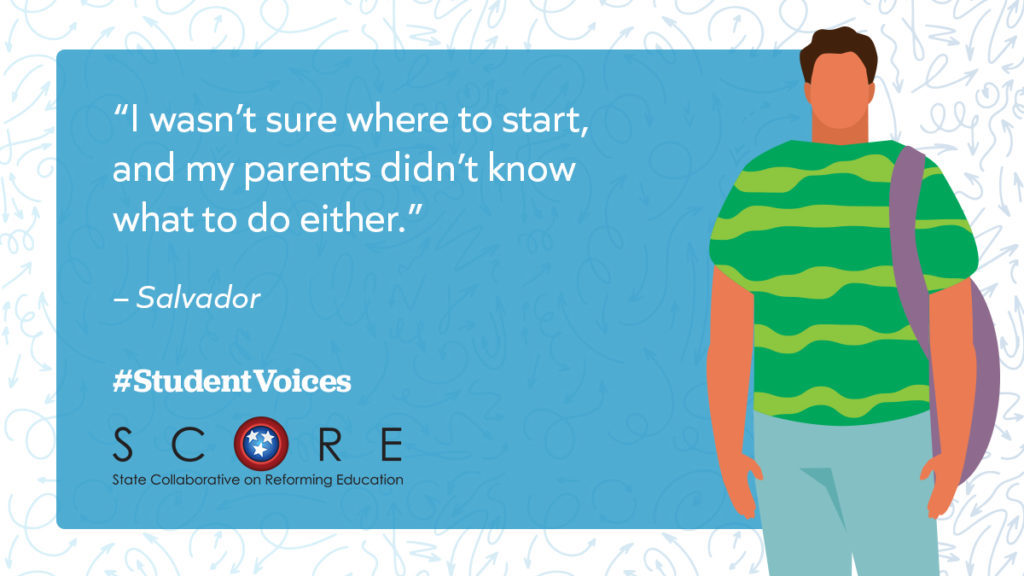
Salvador finished high school in East Tennessee in 2019 unsure of what path to take next for his future. While he wanted to go to college, he didn’t feel that his grades were good enough. Lacking the confidence that he could succeed at college, Salvador said he was “lost for about a year” until he figured out college was his best option.
When students drop out of the education pipeline the summer after completing high school, we refer to the phenomenon as “summer melt.” For the SCORE report, Stopping Summer Melt: What Students Say & What Tennessee Can Do, we identified students affected by summer melt to get their firsthand stories of navigating the transition from high school to higher education. Their stories — Salvador’s included — informed the recommendations in the report.
For first-generation college students like Salvador, it is significantly more difficult to navigate the college-going process. And when he decided to enroll in college a year after high school graduation, without the support of high school teachers and counselors, he said the process was much more difficult.
“I wasn’t sure where to start, and my parents didn’t know what to do either,” Salvador said.
Our report found that two-thirds of Tennessee class of 2019 students impacted by summer melt were academically underprepared for higher education based on their ACT scores. For many students, this can lead to feelings of self-doubt and not seeing college as a realistic option — just like Salvador.
For students like Salvador, additional advising, enrollment supports, or a summer bridge program can make a big difference. If Salvador’s high school had identified him as being at risk for summer melt, they could have provided additional advising and academic support, giving him the confidence to apply for community college immediately after high school. It’s likely that he would already have earned a degree or certificate.
Highly effective student support organizations like The Ayers Foundation and tnAchieves serve students in every county across the state with advising support and access to free bridge programs at every community college, but not enough students are aware of or taking advantage of these opportunities.
Based on ACT scores, 43 percent of Tennessee Promise students are academically unprepared for college, yet only 5 percent of these enrollees participate in summer bridge programs. School districts and higher education institutions could make a coordinated effort to elevate awareness of these important programs as a key strategy for reducing summer melt.
In stark contrast to Salvador, a focus group with students in The Ayers Foundation Scholars Program revealed the positive impact of advising programs. As one student said, “My adviser made the enrollment process easy and helped every step of the way.” One student felt similar to Salvador about being lost in high school but was ultimately able to build out his college plan with some support. “My counselor guided me to explore every potential pathway for success.”
Despite a difficult enrollment process, Salvador feels motivated to succeed in postsecondary education. His first year in community college studying business administration has been going great and his grades are high. But with the earlier benefit of the supports mentioned above, Salvador would already be the first in his family to earn a college degree.
Too many students are missing out on the opportunity for career and life success that comes with earning a postsecondary degree or credential. By providing additional support for students who are most at risk for summer melt, they can see that college enrollment and completion is attainable and important for long-term success in life.
To explore more ways to stop summer melt, download Stopping Summer Melt.
Alexis Parker is SCORE’s senior data and research analyst. Diane Hughes, SCORE’s communications manager, contributed to this post.
Read More:
